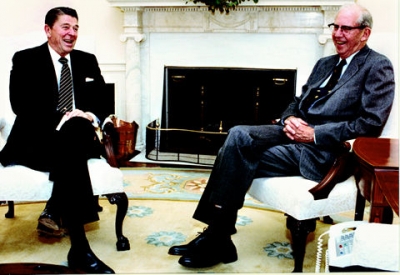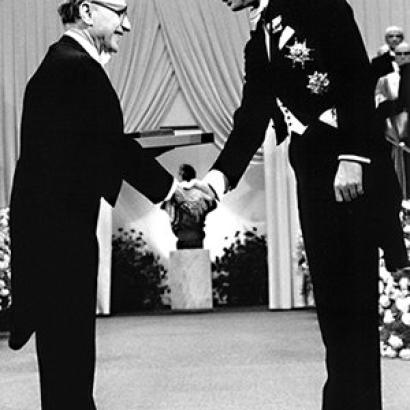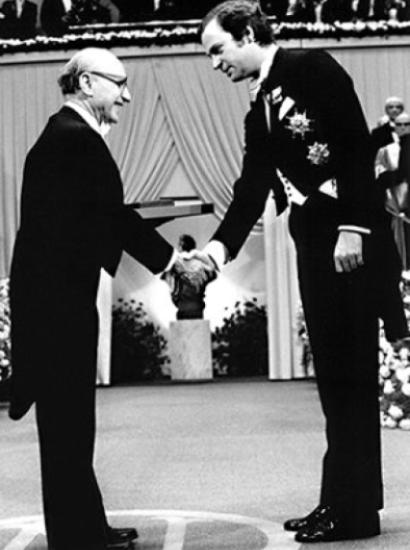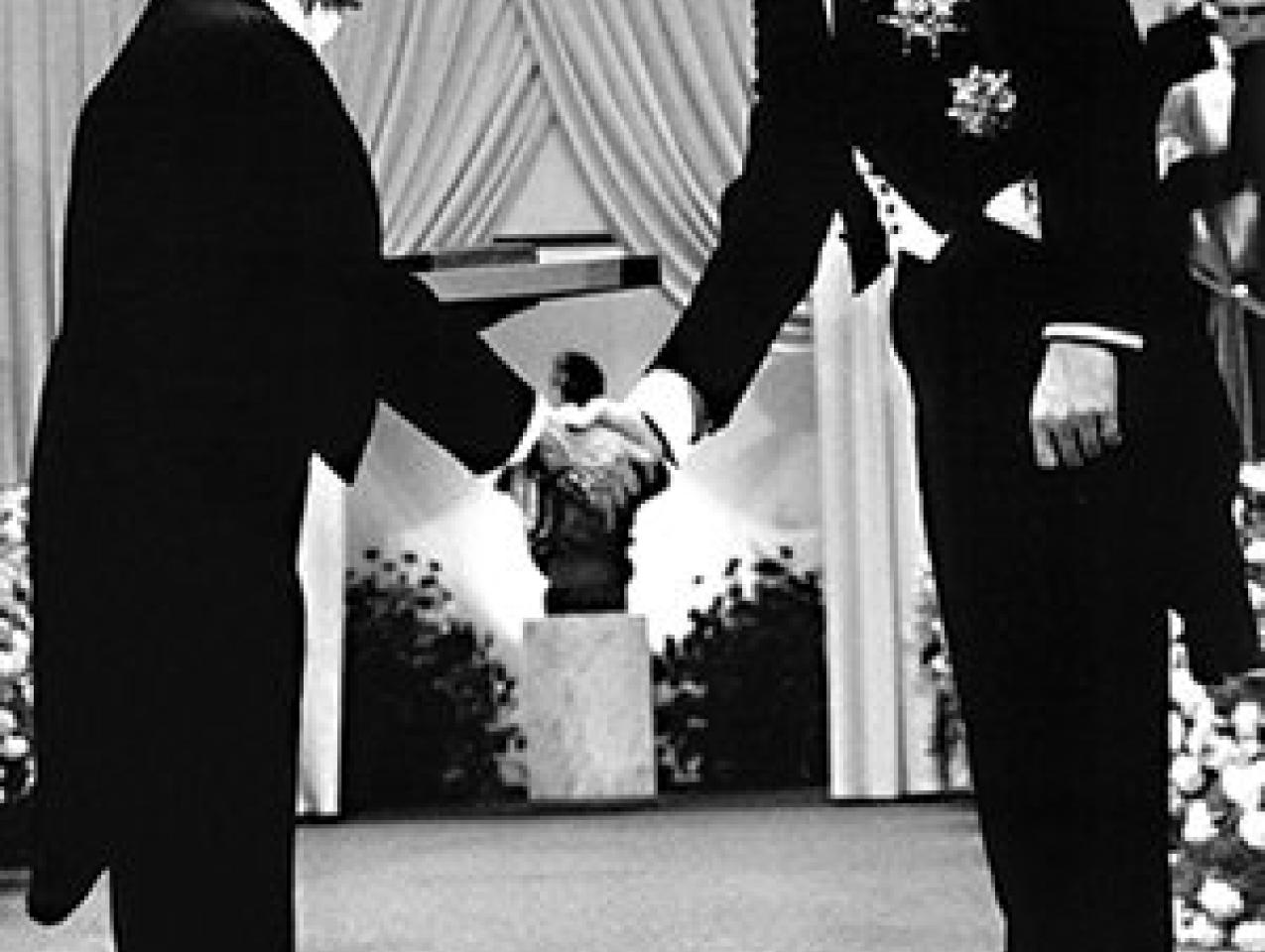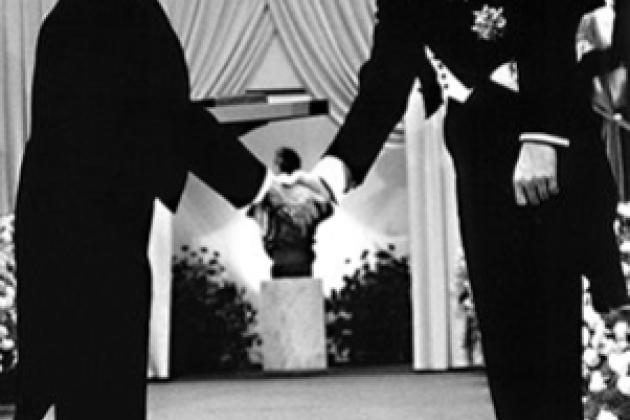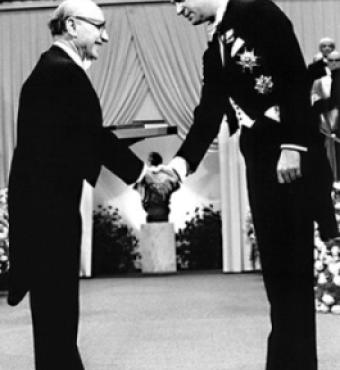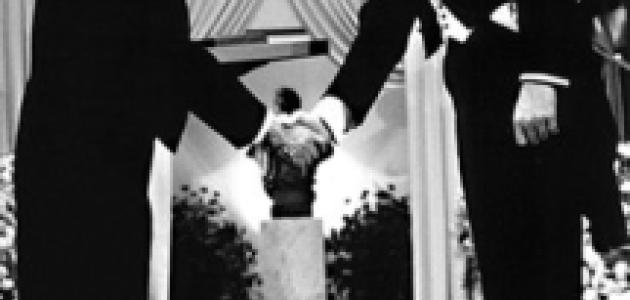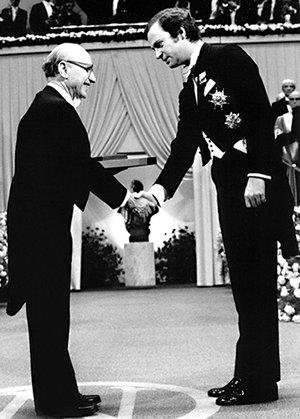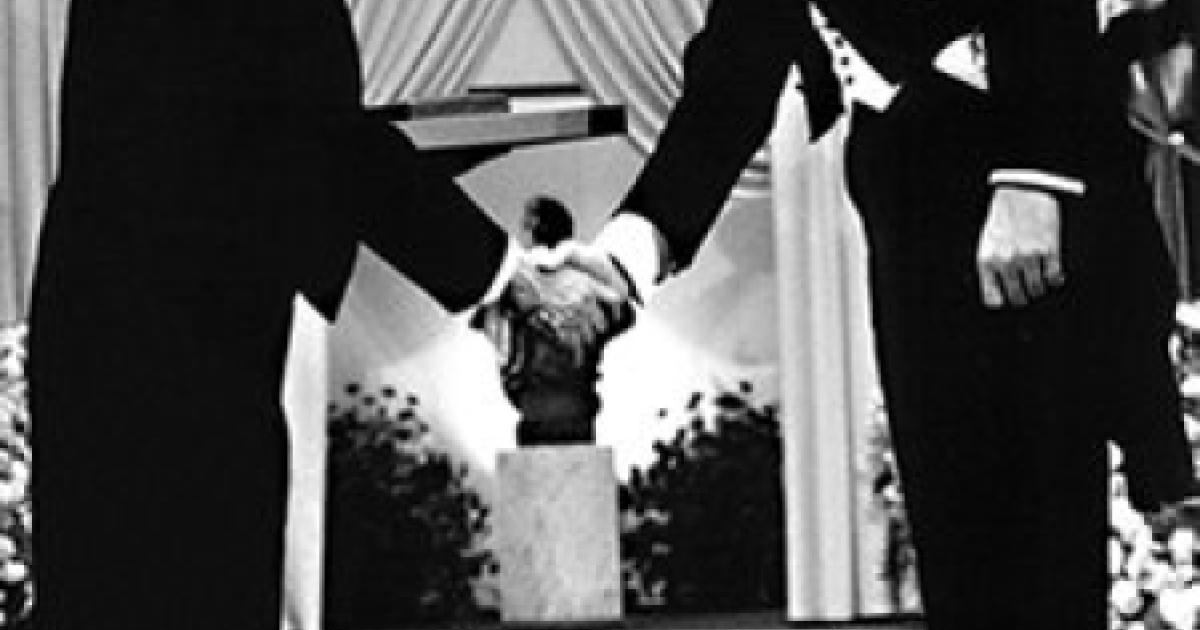In 1969, the Bank of Sweden Prize in Economic Sciences in Memory of Alfred Nobel was established, adding a sixth prize to the five mentioned in Nobel’s will. Three of these Nobel laureates are currently senior fellows at Hoover, many others have been associated with Hoover in the past, and the papers of several Nobel Prize–winning economists are housed in the archives.
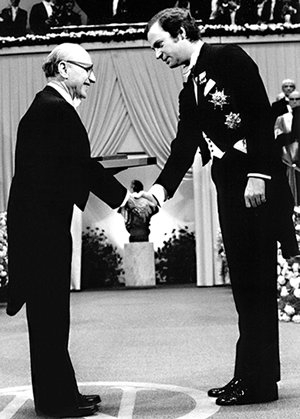
Of the three Hoover senior fellows, Milton Friedman has had the longest tenure with Hoover. He received the Nobel Prize for economics in 1976 “for his achievements in the fields of consumption analysis, monetary history and theory and for his demonstration of the complexity of stabilization policy.” Friedman is widely regarded as the leader of the Chicago School of Economics, which stresses the importance of the quantity of money as an instrument of government policy and as a determinant of business cycles and inflation.
Gary S. Becker is the Rose-Marie and Jack R. Anderson Senior Fellow at the Hoover Institution and a professor in the economics department at the University of Chicago. He was awarded the Nobel Prize in 1992 for having extended the domain of microeconomic analysis to a wide range of human behavior and interaction, including nonmarket behavior, that had previously been dealt with, if at all, by other social science disciplines such as sociology, demography, and criminology. He has applied the principle of rational, optimizing behavior to areas in which researchers formerly assumed that behavior was habitual and often downright irrational.
Douglass C. North, the Bartlett Burnap Senior Fellow at the Hoover Institution, founded cliometrics with Robert Fogel, his corecipient of the 1993 Nobel Prize. Cliometrics uses history to explain economic development (Clio was the muse of history in Greek mythology). North suggested that markets are imbedded in institutions that change over time. Those institutions form the incentive structure of a society and its political and economic institutions. In consequence, they are the underlying determinants of economic performance.
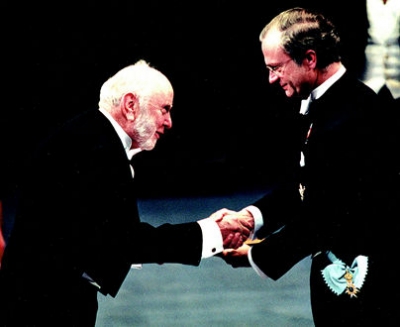
Past Nobel connections include honorary Hoover fellow Friedrich von Hayek (1899–1992), who received the 1974 economics prize (which he shared with Gunnar Myrdal) “for their pioneering work in the theory of money and economic fluctuations and for their penetrating analysis of the interdependence of economic, social and institutional phenomena.” In 1947, von Hayek founded the Mont Pelerin Society to respond to the growing number of European states whose governments were turning to centralized economic planning. Milton Friedman and George Stigler (Hoover senior fellow and recipient of the Nobel Prize for economics, 1982) were 2 of its 39 original members.
George Stigler chaired the Domestic Studies Program Advisory Committee at Hoover; other members included senior fellows James M. Buchanan Jr. (Nobel Prize for economics, 1986) and Gary S. Becker. Additional laureates who have held appointments at Hoover are Kenneth J. Arrow (Nobel Prize for economics, 1972), Myron S. Scholes (Nobel Prize for economics, 1997), and Joseph E. Stiglitz (Nobel Prize for economics, 2001).
